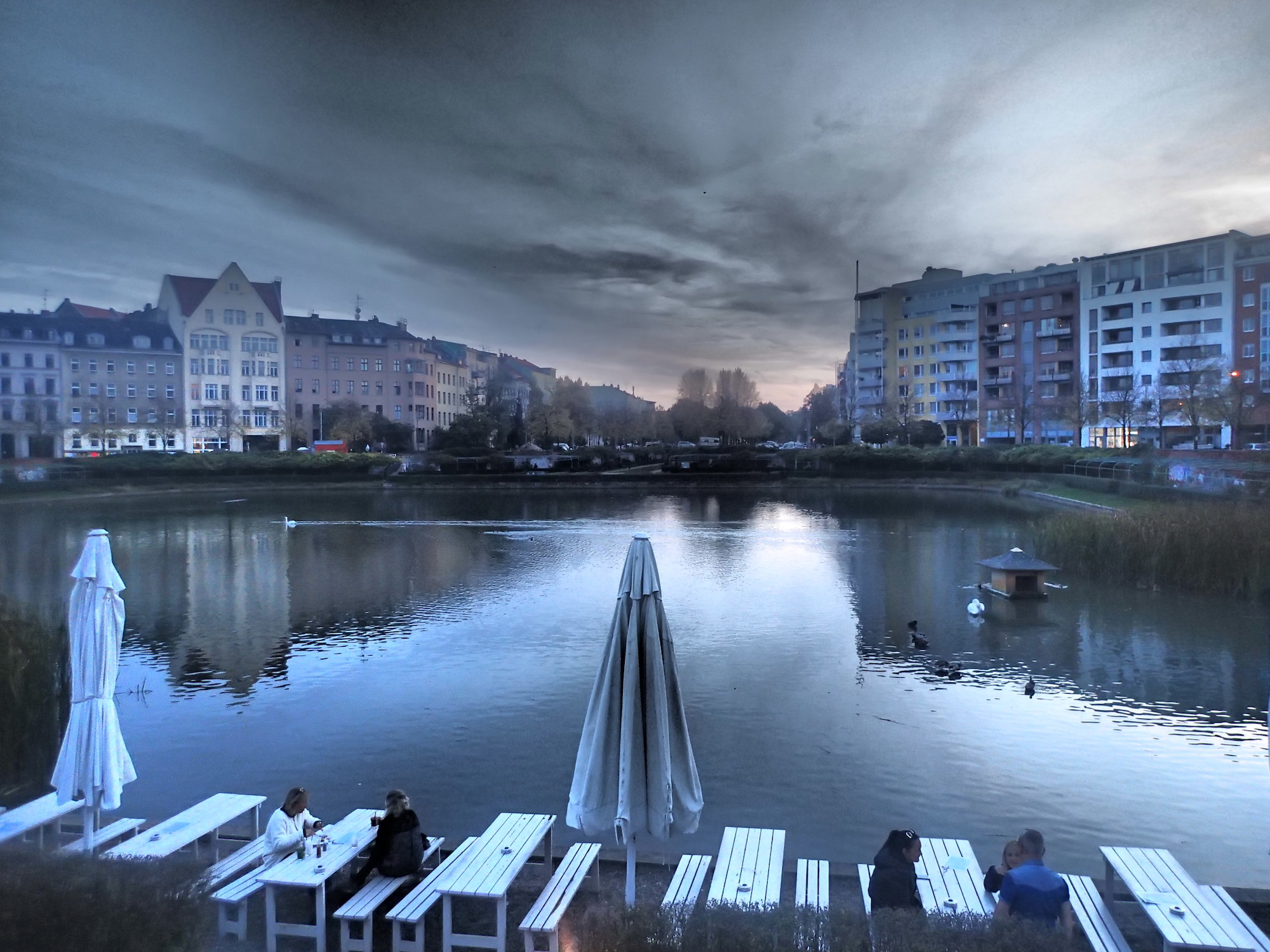Ignore and rule
What do Europeans do when they hear the war waged by the government of Ethiopia has killed more people than the war in Ukraine?

Berlin. Image credit @Carol.78 via Filckr CC BY-ND 2.0.
Europeans love to start the day with a little piece of Africa. Coffee for mum, tea for dad, chocolate for the little one and a banana pocketed on the fly by the teenager for the bus ride to school. Europeans know that their prosperity is built on the work of others. They know that without the oil extracted by workers in Nigeria, the coltan supplied by traders in Congo, and the uranium produced by miners in Chad, their cars wouldn’t run, their phones wouldn’t work and their homes would soon go dark. Yet, how many Europeans are able to locate the capital of Nigeria, Chad or Congo on a map? A kindergarten child can easily name several African mammals, but few would ever suggest the child memorize the name of an African language, society or personality. How can a civilization that thrives on labor in the Global South be so indifferent to these societies?
The literature provides three answers to that question. The first says roughly: It’s capitalism. Capitalism masks social relations. In order to live, workers must produce goods or provide services. But the market-based exchange of commodities transforms relations between workers. Social relations are primarily experienced as “relations between things.” This is what Karl Marx calls “commodity fetishism.” Relationships of production disappear from the field of vision. We end up treating commodities as if they had an intrinsic value, independent of the labor that produces them. Hungarian philosopher György Lukács adds that capitalism reifies social relations. Social relations are objectified, while individuals are plunged into a contemplative stance. Passive, apathetic, depoliticized: the consumer is a spectator.
While Marx and Lukács explain very well how one can use a product every day without knowing anything about the worker who produced it, they don’t tell us why certain workers, certain societies or certain groups are particularly obscured in the culture of capitalism. The economist Samir Amin would answer that capitalism only extends globally through “unequal exchange.” Colonial domination cut the world into two types of capitalist development: the self-centered capitalism of the center, with market growth, rising wages, and consumption. And the extroverted capitalism of the periphery, export-oriented and therefore without significant wage growth. This unequal division of labor logically leads to unequal awareness. While workers in the Global North may be indifferent to the fate of workers in the Global South, the reverse is not true. You can bet that a random Senegalese can name far more French cities than a random French person can name Senegalese cities.
Another form of response however would point less to capitalism and more to the state. In “The Social Production of Indifference,” the British anthropologist Michael Herzfeld shows that bureaucracy treats individuals not as persons but as “cases.” Following Max Weber, Herzfeld shows that the centralization of state power drives a rationalization of practices and a division of bureaucratic labor. The accumulation of knowledge, the creation of specialized services and the professionalization of expertise follow suit. But bureaucratization also increases social distancing. Individuals are no longer linked to each other by face-to-face relations, but by all sorts of “invisible threads:” legal categories, statistics, formalities. French sociologist Béatrice Hibou adds that, contrary to what is often thought, neoliberalism does not debureaucratize. On the contrary, it adds new forms of distancing: numerical indicators, benchmarking, and management techniques. Here again, the problem is more general than the relationship between Europeans and Africans. But colonization has also left its mark on the bureaucratic trajectory. Post-colonial bureaucracy is indifferent to the fate of peripheral populations. Cameroonian political scientist Achille Mbembé calls this “government by neglect.” It’s the exercise of power through abandonment, relegation, and invisibilization. We end up relying on experts and specialists, rather than considering problems for ourselves. Eventually, we hope, someone in charge will take care of the looming problem for us.
A third type of response of course is racism. Racial theory and the dissemination of technologies of division (apartheid, segregation, border closures, encampment) have separated emotional communities. White people do not feel concerned with Black issues; they live in the comfortable quietness of what the philosopher Charles W. Mills calls “White Ignorance.” But indifference also comes from a denial of race. For US-American sociologists Tyrone A. Forman and Amanda E. Lewis, indifference is a new form of racism. While earlier racism was explicit, contemporary racism is less so. When asked about the plight of non-white people, white Americans used to justify their misfortunes on the grounds of biological or cultural inferiority. Today, Forman and Lewis explain, they are content to just ignore it. Pretend to see nothing of the differences so as not to have to worry about them: “Racial apathy and White ignorance (i.e., not caring and not knowing) are extensions of hegemonic color-blind discourses (i.e., not seeing race)”.
Of course, the question of Europe’s indifference to the fate of the rest of the world is an old one. But this question is particularly acute today. The gap between the rapid flow of information and the indifference shown to certain population groups has never been wider. The number of drowning deaths in the Mediterranean (several thousand), the number of people suffering from hunger in Somalia (several hundred thousand), or the number of direct victims of the war in Ethiopia (more than half a million) are all widely ignored. When Europeans read in the newspapers that the war waged by the government of Ethiopia has killed more people than the war in Ukraine, their reflex is to compartmentalize by relegating it a war far away in an exotic place. Chances are they will close the journal before ever realizing that the coffee they are drinking is from there.



